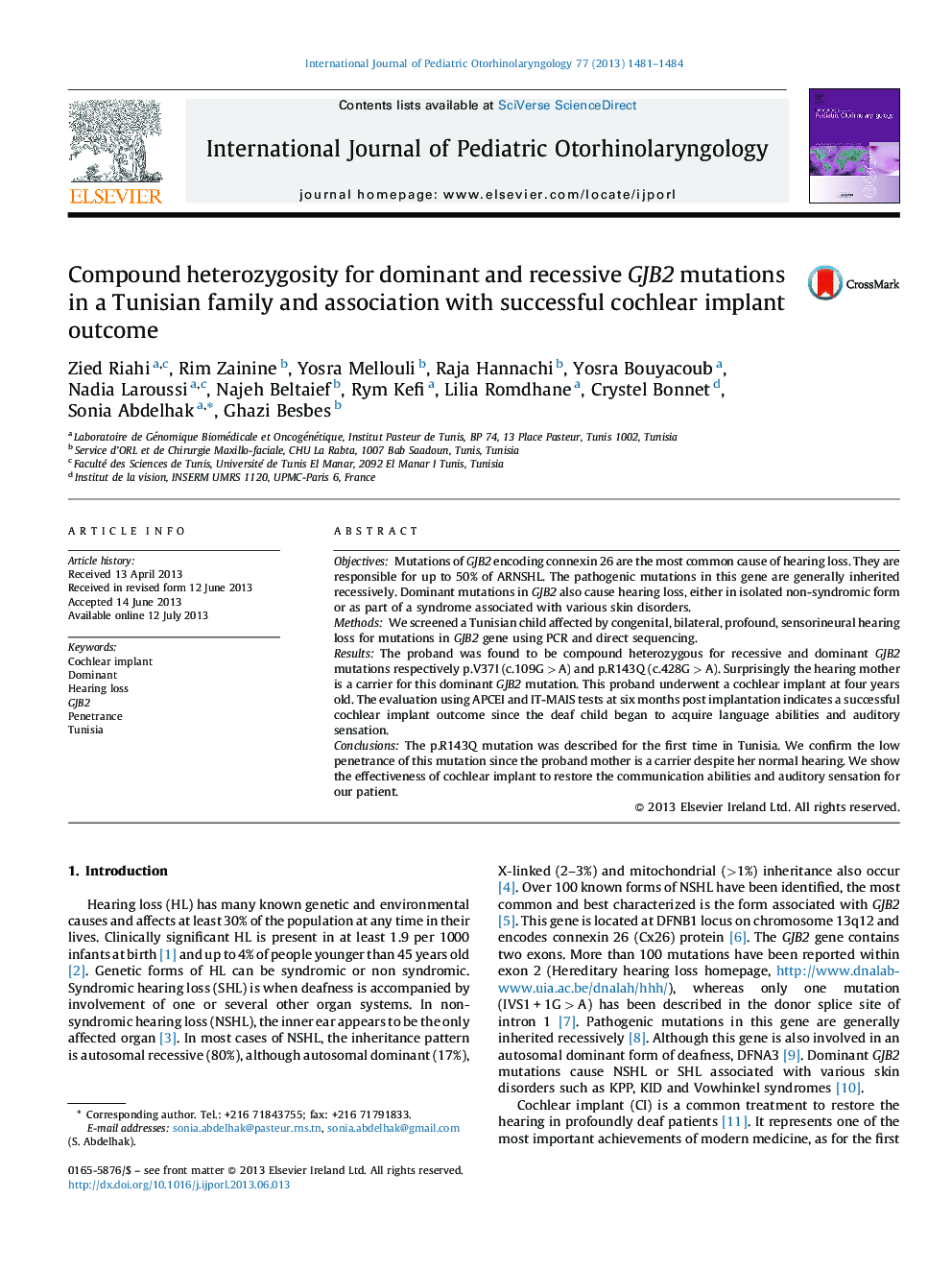| Article ID | Journal | Published Year | Pages | File Type |
|---|---|---|---|---|
| 6213513 | International Journal of Pediatric Otorhinolaryngology | 2013 | 4 Pages |
ObjectivesMutations of GJB2 encoding connexin 26 are the most common cause of hearing loss. They are responsible for up to 50% of ARNSHL. The pathogenic mutations in this gene are generally inherited recessively. Dominant mutations in GJB2 also cause hearing loss, either in isolated non-syndromic form or as part of a syndrome associated with various skin disorders.MethodsWe screened a Tunisian child affected by congenital, bilateral, profound, sensorineural hearing loss for mutations in GJB2 gene using PCR and direct sequencing.ResultsThe proband was found to be compound heterozygous for recessive and dominant GJB2 mutations respectively p.V37I (c.109GÂ >Â A) and p.R143Q (c.428GÂ >Â A). Surprisingly the hearing mother is a carrier for this dominant GJB2 mutation. This proband underwent a cochlear implant at four years old. The evaluation using APCEI and IT-MAIS tests at six months post implantation indicates a successful cochlear implant outcome since the deaf child began to acquire language abilities and auditory sensation.ConclusionsThe p.R143Q mutation was described for the first time in Tunisia. We confirm the low penetrance of this mutation since the proband mother is a carrier despite her normal hearing. We show the effectiveness of cochlear implant to restore the communication abilities and auditory sensation for our patient.
